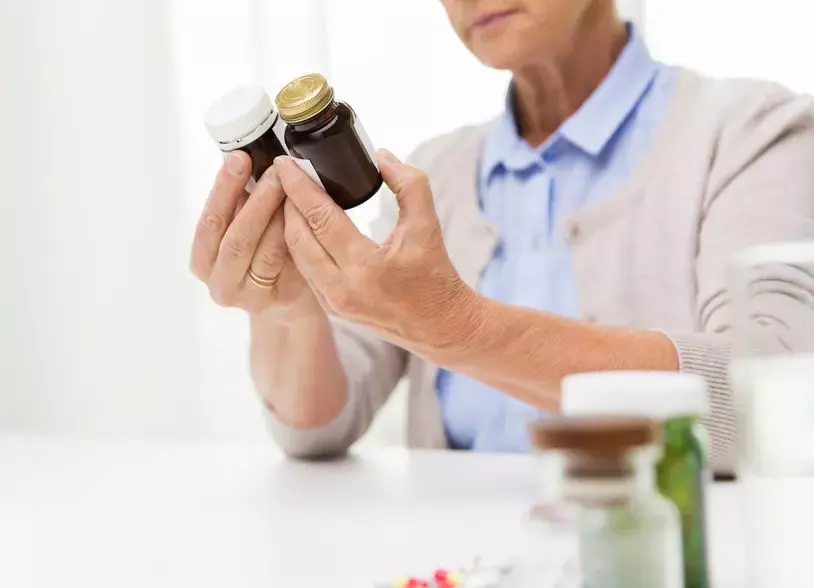- Home
- Medical news & Guidelines
- Anesthesiology
- Cardiology and CTVS
- Critical Care
- Dentistry
- Dermatology
- Diabetes and Endocrinology
- ENT
- Gastroenterology
- Medicine
- Nephrology
- Neurology
- Obstretics-Gynaecology
- Oncology
- Ophthalmology
- Orthopaedics
- Pediatrics-Neonatology
- Psychiatry
- Pulmonology
- Radiology
- Surgery
- Urology
- Laboratory Medicine
- Diet
- Nursing
- Paramedical
- Physiotherapy
- Health news
- Fact Check
- Bone Health Fact Check
- Brain Health Fact Check
- Cancer Related Fact Check
- Child Care Fact Check
- Dental and oral health fact check
- Diabetes and metabolic health fact check
- Diet and Nutrition Fact Check
- Eye and ENT Care Fact Check
- Fitness fact check
- Gut health fact check
- Heart health fact check
- Kidney health fact check
- Medical education fact check
- Men's health fact check
- Respiratory fact check
- Skin and hair care fact check
- Vaccine and Immunization fact check
- Women's health fact check
- AYUSH
- State News
- Andaman and Nicobar Islands
- Andhra Pradesh
- Arunachal Pradesh
- Assam
- Bihar
- Chandigarh
- Chattisgarh
- Dadra and Nagar Haveli
- Daman and Diu
- Delhi
- Goa
- Gujarat
- Haryana
- Himachal Pradesh
- Jammu & Kashmir
- Jharkhand
- Karnataka
- Kerala
- Ladakh
- Lakshadweep
- Madhya Pradesh
- Maharashtra
- Manipur
- Meghalaya
- Mizoram
- Nagaland
- Odisha
- Puducherry
- Punjab
- Rajasthan
- Sikkim
- Tamil Nadu
- Telangana
- Tripura
- Uttar Pradesh
- Uttrakhand
- West Bengal
- Medical Education
- Industry
Study compares effectiveness of SGLT2i and GLP-1RA in elderly diabetics

Sodium-glucose cotransporter 2 inhibitors (SGLT-2is) and glucagon-like peptide-1 receptor agonists (GLP-1RAs) are two classes of glucose-lowering drugs gaining popularity in the treatment of type 2 diabetes mellitus (T2DM). In a recent study, researchers have reported that Sodium-glucose cotransporter 2 (SGLT2) inhibitors to treat type 2 diabetes appear to confer greater cardiovascular benefit than glucagon-like peptide-1 (GLP-1) receptor agonists among older adults. The research findings have been published in the journal Diabetes Care on January 25, 2021.
Both sodium-glucose cotransporter 2inhibitors (SGLT2i) and glucagon-like peptide 1receptor agonists (GLP-1RA) demonstrated cardiovascular benefits in randomized controlled trials of patients with type 2 diabetes (T2D) generally <65 years old and mostly with cardiovascular disease. Current guidelines suggest patient-centred approaches when deciding between available hyperglycaemia drugs with no indication to which specific drug should be administered. Despite systematic reviews and meta-analyses being conducted within SGLT-2is and GLP-1RAs, differences across these classes of drugs have not been investigated. To fill the knowledge gap researchers of Brigham and Women's Hospital and Harvard Medical School, Boston, US, conducted a study to evaluate the comparative effectiveness and safety of SGLT2i and GLP-1RA among real-world older adults.
Researchers used Medicare data (April 2013–December 2016) and identified 90,094 propensity score-matched (1:1) T2D patients of age more than or equal to 66 years old initiating SGLT2i or GLP-1RA. They assessed the major adverse cardiovascular events (MACE) (i.e., myocardial infarction, stroke, or cardiovascular death) and hospitalization for heart failure (HHF) as primary outcomes. They also evaluated diabetic ketoacidosis (DKA), genital infections, fractures, lower-limb amputations (LLA), acute kidney injury (AKI), severe urinary tract infections, and overall mortality.
Key findings of the study were:
• On comparing GLP-1RA and SGLT2i, they noted SGLT2i initiators had similar MACE risk (HR 0.98; RD −0.38) and reduced HHF risk (HR 0.68; RD −3.23), over a median follow-up of ∼6 months.
• They also noted 0.7 more DKA events, 0.9 more LLA, 57.1 more genital infections, and 7.1 fewer AKI events per 1,000 person-years.
The authors concluded, "Among older adults, those taking SGLT2i had similar MACE risk, decreased HHF risk, and increased risk of DKA, LLA, and genital infections versus those taking GLP-1RA".
For further information:
https://care.diabetesjournals.org/content/early/2021/01/14/dc20-1464
Medical Dialogues Bureau consists of a team of passionate medical/scientific writers, led by doctors and healthcare researchers. Our team efforts to bring you updated and timely news about the important happenings of the medical and healthcare sector. Our editorial team can be reached at editorial@medicaldialogues.in.
Dr Kamal Kant Kohli-MBBS, DTCD- a chest specialist with more than 30 years of practice and a flair for writing clinical articles, Dr Kamal Kant Kohli joined Medical Dialogues as a Chief Editor of Medical News. Besides writing articles, as an editor, he proofreads and verifies all the medical content published on Medical Dialogues including those coming from journals, studies,medical conferences,guidelines etc. Email: drkohli@medicaldialogues.in. Contact no. 011-43720751


